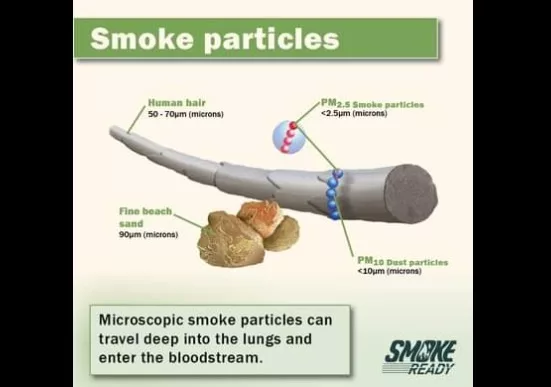
From the Department of Health:
When smoke arrives it’s important to reduce exposure by staying up to date on the forecast and air quality index, limiting time outside, and keeping indoor air as clean as possible. After several days smoke can enter homes and buildings through leaky gaps in windows and doors. Having a way to filter indoor air will benefit your health. It’s key to buy supplies in advance because they often sell out quickly when it’s smoky out.
Filter indoor air by using a:
- HVAC system with MERV 13 filter.
- HEPA portable air cleaner.
- DIY box fan filter.
“We no longer have smoke-free summers in Washington,” said Kelly. “It’s important to know what is in wildfire smoke and why it can be bad for your health.”
Smoke from wildfires contains fine particles and gases including carbon monoxide. Exposure to smoke can cause a number of health problems ranging from minor to severe. Those with pre-existing conditions, infants and children, pregnant individuals, adults 65 and older, and people with heart and lung disease can be most sensitive to wildfire smoke. Minor symptoms can include headaches, stinging eyes, runny nose, and trouble breathing.
You can stay updated on wildfires, air quality, the forecast, and health information on the WA Smoke Blog. For more information on how to protect yourself from wildfire smoke, visit the DOH’s Smoke from Fires webpage.


